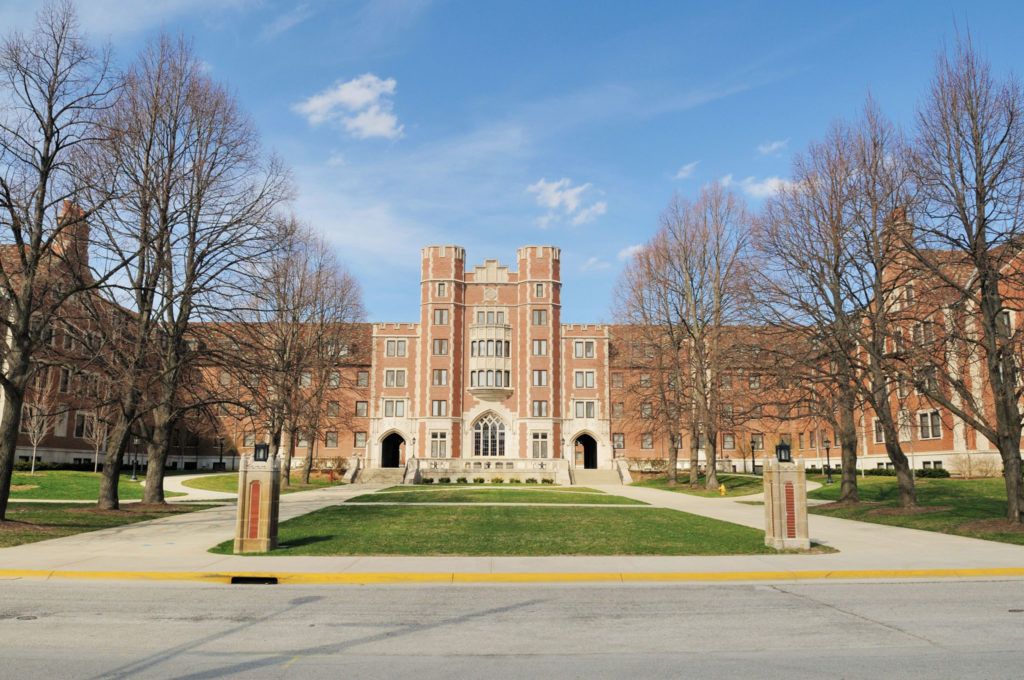Darryl Paulson: Do universities discriminate in hiring?

Universities are touted as bastions of diversity whose prime role is to encourage students to engage in critical thinking, ask tough questions and expose themselves to a diversity of ideas and opinions. If that is the mission of the university, they have dismally failed. Diversity is respected, up to a point, as long as it doesn’t include ideological diversity. As liberal commentator Nicholas Kristof observed in a recent New York Times op-ed, “We progressives believe in diversity, and we want women, blacks, Latinos, gays and Muslims at the table — er, so long as they aren’t conservative.” Welcome to the modern American university, where almost every type of diversity is encouraged, except for ideological diversity. Try challenging liberal dogma as a student or professor, and you will likely find yourself facing counseling and academic discipline. Where are all the conservative faculty? How many conservative faculty did you, your children or grandchildren encounter as part of their university education? If you are like most, the answer is very few. In fact, two scholars recently found that there were twice as many Marxists in the humanities and social sciences than Republicans. Most university will have their token conservative professor. Harvard has Harvey Mansfield, Princeton has Robert George, and Yale has Donald Kagan. I was one of the few conservative professors at the University of South Florida, and doubt that I would have been hired if my conservative views were known. I believe I was hired because I had spent the prior year as a National Teaching Fellow at Florida A & M University. Anyone who taught at a historically black university had to be a liberal. In addition, my doctoral dissertation was on the emergence of the black mayor in America in the aftermath of the civil rights movement. Only a liberal would be interested in writing about African-American politicians. John Hasnas, a Georgetown University professor recently explained the faculty recruitment process to the Wall Street Journal. Every recruitment meeting, wrote Hasnas, begins with a strong exhortation from the administration about diversity and the need for more woman and minority faculty. No recruitment committee has ever been instructed about the need to have a more ideologically diverse faculty. How rare are conservative professors? Where the nation is fairly evenly split between Republicans and Democrats, a recent study found that only 13 percent of law school faculty are Republicans. A similar study by the Georgetown Law Journal found that 81 percent of law professors at the top 21 law schools donated money to Democrats and 15 percent to Republican candidates. Daniel Klein, an economist at George Mason University, studied 1,000 professors around the nation and found Democrats outnumbered Republicans seven to one in the humanities and social sciences. In anthropology and sociology, the margin was 30 to 1. Johnathan Haidt, a renowned social psychiatrist at New York University, was so startled by the lack of conservative academics that he started a website, Heterodox, to foster more ideological diversity. In his own profession, 96 percent of social psychiatrists were left of center, 3.7 percent were centrist, and 0.03% were right of center. How would you like to be that sole right-of-center social psychiatrist? In one of the largest studies of ideological diversity on college campuses, the North American Academic Study Survey (NAASS) examined 1,643 faculty from 183 universities in 1999. 72 percent of faculty described themselves as liberals and 15 percent as conservatives. The same year as the NAASS study, the Harris Poll found that 18 percent of Americans described themselves as liberals and 37 percent called themselves conservative. Clearly, academia does not mirror the nation. Even in supposedly conservative academic enclaves, liberals outnumbered conservatives by 51 to 19 percent in engineering and 49 to 39 percent in business. Why are there so few conservative faculty on college campuses? Alan Kors, a conservative professor at Penn, argues that conservatives face a “hostile and discriminatory” environment. Conservatives seeking academic jobs are “outed” by their group associations, major professors, or dissertation topic. Not long ago, Harvard University found that only two of its doctoral students in the Government Department failed to get an academic placement. Harvey Mansfield advised both students, widely recognized for his conservative views. Liberals argue that there is no discrimination against conservatives. George Lakoff, a liberal linguistics professor at Berkeley, argues that liberals seek academic careers because “unlike conservatives, they believe in working for the public good and social justice.” In other words, conservatives are simply out for the money while liberals seek the betterment of society. Lakoff is proof positive of why we need more conservatives in academia. Look for Part II: Do universities discriminate? – The attack on free speech ••• Darryl Paulson is Professor Emeritus of Government at the University of South Florida in St. Petersburg.
Study: Alabama ranks No. 13 in the nation in state “fiscal health”

A new study from the Mercatus Center at George Mason University today released an update to their 50-state study of the fiscal soundness and stability of state governments. It lists Alabama as significantly ahead of the pack, ranking No. 13 in the country, just behind neighboring Tennessee at No. 8 but well above other southern states like Georgia, Mississippi and Lousiana who ranked in the bottom half. Alabama was cited in particular for high marks in fiscal solvency and service-level solvency, measures of cash on hand (No. 8) and whether state services adequately defray state costs when it comes to fees, taxes and licensure (No. 13). The state was docked, however, for its infamously precarious budget situation. The Center ranked the state No. 36 for its budget solvency criterion, citing a 1.02 operating ratio – meaning that the state carries slightly more obligations than it receives in revenue – and a modest per capita state deficit, at $90 per Alabama taxpayer. Lawmakers left Montgomery last month without passing a budget, as Gov. Robert Bentley vetoed the Legislature’s FY 2015-2016 spending proposal after the Senate had adjourned, leaving the state in budgetary limbo until it re-convenes for an expected Special Session in August. Its fiscal hopes were lifted last week, however, as the state reached a $2.3 billion settlement with BP over the 2011 Deepwater Horizon oil spill, to be paid out over the next 18 years. The study noted that Alabama’s long-term pension projections were of concern as well, with some $53 billion in future liabilities currently funded at a 66 percent rate, just under the national 70 percent level. Overall state debt per capita was listed at $1,309 per Alabamian, far from ideal but considerably better than the national state average of $2,768 in per capita debt. See the Mecatus Center’s full analysis of Alabama’s fiscal wellbeing here.


